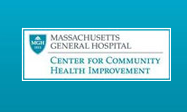Click the audio player below to listen to the conversation.
Anthony’ s dad just got a call from his son’s school. He’d been caught giving out prescription pain relievers to kids at the high school. His father immediately checked the medicine cabinet and realized that Michael had been taking pills from a prescription he’d received after recent surgery.
Click here to read the Transcript
(knock, knock at the door)
DAD: Anthony, I need to talk to you about something serious. Your principal called and told me what happened today.
ANTHONY: Oh.
DAD: I’m really disappointed, and concerned. You’ve been taking pills from my prescription bottle!
ANTHONY: Dad, those pills are not that big of a deal. They just help take the edge off a little. We were just having a little fun.
DAD: What do you mean, they’re no big deal? Why are kids using them? Are you taking them at school?
ANTHONY: They’re for partying. It’s so boring around here and they just make things more interesting. Mostly kids take them after school or on the weekends or just to stay alert while studying. Some kids crush the tablet, snort it or dilute a pill in water to inject it. But it’s not like they’re doing heroin!
DAD: ANTHONY, those pills are serious. That’s why you can only get them with a doctor’s prescription. They can be really dangerous, especially for a teenager. You could do some very real damage to your body or your brain, even overdose. These drugs are also highly addictive! And what if something happened to one of the kids you gave pills to?
ANTHONY: Nothing would happen. Kids at school use those pills all the time.
DAD: That doesn’t mean they’re safe. I want you to tell me how much you’ve been taking. And I want you to tell me the truth.
ANTHONY: (pause) I only took them a few times. I saw them in the medicine cabinet. I was stressed out and needed to relax. It’s not like I’m addicted or anything.
DAD: Well, I want you to see someone to make sure there’s no problem. I made an appointment with a counselor so you can get a substance abuse assessment.
ANTHONY: What? Dad, you’re totally overreacting.
DAD: I don’t think so. I want to be sure everything is under control, so you’ll be going tomorrow. Also, I want to make sure you know that drug use is absolutely not permitted in this family. Under no uncertain terms. And this includes misusing prescription drugs!
ANTHONY: I can’t believe you think I’m some kind of druggie, just because I took a few pills!
DAD: Anthony, I don’t think that. I just want to make sure we don’t have a more serious problem here. I’m concerned that you were taking the pills, but also that you gave them to other students. That was a really bad decision. You were breaking the law and it could have serious consequences for your future. You’re lucky your principal didn’t call the police.
ANTHONY: You’re blowing this way out of proportion.
DAD: No, I’m not. I love you and I’m worried. At this point, I’m going to ground you for the rest of the month and we’ll talk more after your appointment tomorrow.
________________________________________________
Tips for Parents -- What To Do and When
When you have a suspicion that your teen is "experimenting" with drugs, what do you do.
Get Educated
First, learn as much as you can. Sign up for TheAntiDrug Parenting Tips Newsletter for information and scientific evidence on drug and alcohol use by teens. Or, you can call the Substance Abuse & Mental Health Services Administration (SAMHSA) for free pamphlets and fact sheets. They’ll even send it in a plain envelope if you wish. They can be reached at 1-800-662-HELP (24 hours, 7 days a week). Or visit their Web site at www.samhsa.gov
Have The Talk -- Let them Know you Know
The next thing you can do is sit down and talk with your child. Be sure to have the conversation when you are all calm and have plenty of time. This isn’t an easy task—your feelings may range from anger to guilt that you have “failed” because your kid is using drugs. This isn’t true—by staying involved you can help his/her stop using and make choices that will make a positive difference in his/her life.
Be Specific About your Concerns
Tell your child what you see and how you feel about it. Be specific about the things you have observed that cause concern. Make it known if you found drug paraphernalia (or empty bottles or cans). Explain exactly how his/her behavior or appearance (bloodshot eyes, different clothing) has changed and why that worries you. Tell him/her that drug and alcohol use is dangerous and it’s your job to keep him/her away from things that put his/her in danger.
Don't Make Excuses
Although it’s natural for parents to make excuses for their child, you’re not helping
him/her if you make excuses when he/she misses school or family functions when you
suspect something else is at play. Take the next step: Talk to your child and get more
information.
Try to Remain Calm and Connect With your Child
Have this discussion without getting mad or accusing your child of being stupid or bad or an embarrassment to the family. Be firm but loving with your tone and try not to get hooked into an argument. Knowing that kids are naturally private about their lives, try to find out what’s going on in your child’s life. Try not to make the discussion an inquisition; simply try to connect with your teen and find out why he/she may be making bad choices. Find out if friends or others offered your child drugs at a party or school. Did he/she try it just out of curiosity, or did he/she use marijuana or alcohol for some other reason? That alone will be a signal to your child that you care and that you are going to be the parent exercising your rights.
Here are some suggested things to tell your son or daughter:
- You LOVE him/her, and you are worried that he/she might be using drugs or
alcohol; - You KNOW that drugs may seem like the thing to do, but doing drugs can have
serious consequences; - It makes you FEEL worried and concerned about him/her when he/she does
drugs; - You are there to LISTEN to him/her;
- You WANT him/her to be a part of the solution;
- You tell him/her what you WILL do to help him/her.
- Know that you will have this discussion many, many times. Talking to your kid
about drugs and alcohol is not a one-time event.
Be prepared. Practice What You'll Say
Be prepared for your teen to deny using drugs. Don’t expect him/her to admit he/she has a problem. Your child will probably get angry and might try to change the subject. Maybe you’ll be confronted with questions about what you did as a kid. If you are asked, it is best to be honest, and if you can, connect your use to negative consequences. Answering deceptively can cause you to lose credibility with your kids if they ever find out that you’ve lied to them. On the other hand, if you don’t feel comfortable answering
the question, you can talk about some specific people you know that have had negative things happen to them as a result of drug and alcohol use. However, if the time comes to talk about it, you can give short, honest answers like these:
“When I was a kid I took drugs because some of my friends did. I wanted to in order to fit in. If I’d known then about the consequences and how they would affect my life, I never would have tried drugs. I’ll do everything I can to help keep you away from them.”
“I drank alcohol and smoked marijuana because I was bored and wanted to take some risks, but I soon found out that I couldn’t control the risks — the loss of trust of my parents and friends. There are much better ways of challenging yourself than doing drugs.”
Act Now
You can begin to more closely monitor your child’s activities. Have a few conversations. Ask: Who? What? Where? When? Reflect with your child on why he/she is using drugs and try to understand the reasons why so that you can help solve the problem. When you get a better idea of the situation, then you can decide next steps. These could include setting new rules and consequences that are reasonable and enforceable — such as a new curfew, no cell phone or computer privileges for a period of time, or less time hanging out with friends. You may want to get them involved in pro-social activities that will keep them busy and help them meet new people. For more information about how to set and enforce rules, visit the Advice area on www.TheAntiDrug.com.
Having the Converstation... with Other Parents or Friends
All of us need help at some point in our lives. Sometimes we need to have a critical conversation with other parents about their own child’s substance use. Perhaps you’re even close with the parents of your teen’s friends. This is a difficult conversation because everyone has a tendency to want to keep family issues to themselves. But, by doing so, you can often miss out on a friend that can assist you — someone who can help you think clearly and offer words of wisdom from their personal perspective. You may already have a trusted friend in mind who can help you. Don’t be afraid to ask for that help when you need it.
Key Talking Points
- I have found out that my child has been using drugs and alcohol, and I am taking action with him/her. I have reason to believe that your child was using as well. I am telling you because I know I would want you to tell me if the situation were reversed.
- I am concerned that our children may be using drugs or alcohol. This is why I suspect it is so. What do you think we can do to help our kids?
- This is very hard for me to talk about and I ask that you just hear me out. I worry that our kids are using drugs. I have come to you to talk about it, and for us to figure out what to do.
- I worry that my teen is using drugs or alcohol but I don’t have anything to prove my feeling. Have you ever had any experience with your kids using drugs or alcohol?
- Do you know any resources or places I can go to get help for my teen? I found out that he is using drugs and alcohol and I don’t know what to do. Have you ever had any experiences with this before?
Resources



